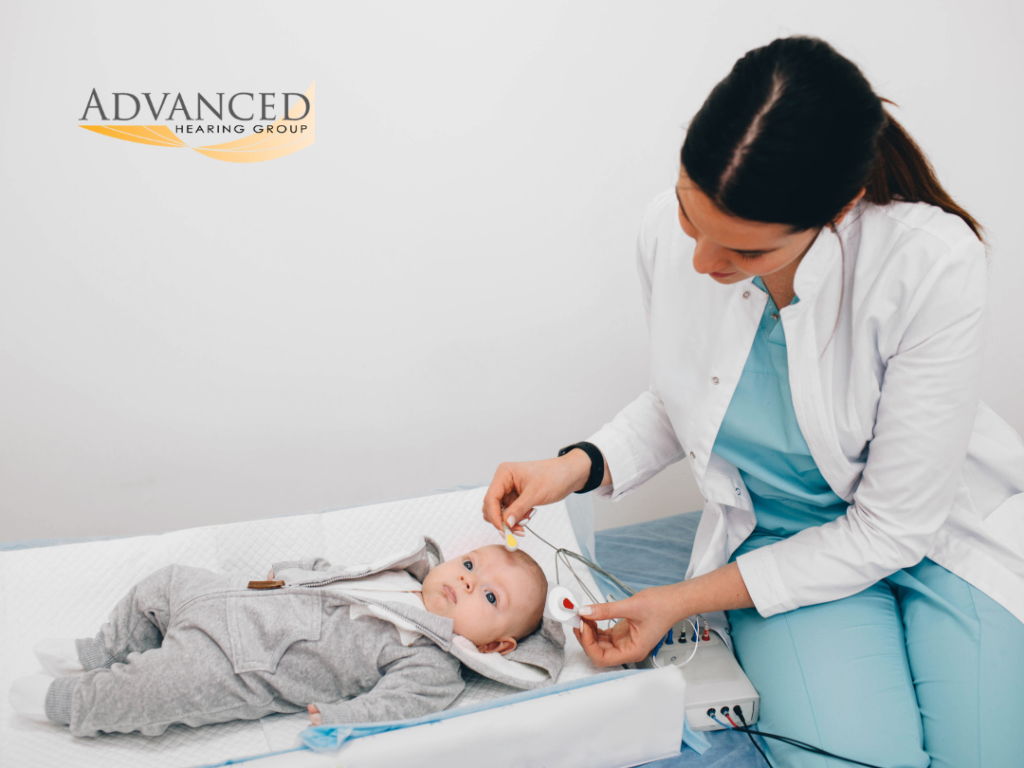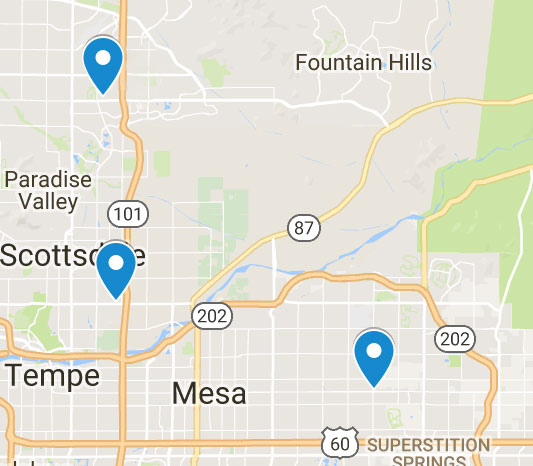
Did you know that infants undergo a newborn hearing screening before they even leave the hospital? That’s right … along with all the other tests and procedures that are done on babies, testing for hearing loss happens before you even get to bring them home.
If you think it’s strange that newborns need their hearing tested so early in life, we’re here to set the record straight. A newborn hearing screening isn’t just a test doctors do for curiosity’s sake. It’s actually vital for your child’s hearing health and overall development.
Why is newborn hearing screening necessary?
Most babies are born looking absolutely perfect. Those tiny toes, cute little fingers, and soft coos make it easy to love a newborn at first sight. But while everything may look just great on the outside, it’s not uncommon for there to be problems on the inside that simply aren’t visible to the naked eye. And, while it may be difficult to think about your new baby having any problems whatsoever, it’s better to know about them if there are any internal issues.
A newborn hearing screening is exactly what it sounds like – a test that screens for hearing loss in infants. The reason why this test is so important is because hearing affects speech and language development as well as educational development as a child grows. When hearing loss is identified and treated early on, children with hearing loss can get earlier access to sound which can help them develop normally.
How are babies tested for hearing loss?
A newborn hearing screening is typically performed in one of two ways:
- Otoacoustic Emissions (OAE) Testing – This test measures the inner ear’s response to sound. A tiny probe is inserted into the infant’s ear. Clicks or tones are played and the probe measures how well the inner ear responds to them. Since no response is required by the person being tested, OAE testing can also be used with older people who have behavioral or communications disorders which would prevent them from being able to undergo a standard hearing test.
- Auditory Brainstem Response (ABR) – This test measures brain wave activity in response to sound. Since ABR testing does not require any response from the patient, it can even be done while they are sleeping. In fact, for a newborn hearing screening, many practitioners actually prefer the baby to be asleep since they’ll be quieter, less active, and higher quality results can be obtained from the test.
Watch this video to learn more about how a newborn hearing test is done and why it’s so important:
What to expect after a newborn hearing screening
Of course, the best result of an infant hearing test is a ‘pass’. While this doesn’t preclude the baby from developing hearing loss later in childhood, it’s at least a good indication that hearing is healthy at the present time.
If your child receives a ‘fail’ from a newborn hearing test, it’s important to remain calm and follow through with recommendations from your hearing healthcare provider. It’s not uncommon for babies to fail the first test but pass a subsequent one done at a later date. This could happen because of fluid in the ear canal or middle ear right after birth.
If your baby fails a second test, it’s likely that hearing loss treatment will be recommended. When hearing loss is identified and treated early, there are steps that can be taken to help ensure normal development of your child’s speech and language.
Whether your baby has failed a newborn hearing screening or you’ve started to notice hearing changes in an older child, we are here to help. The audiologists at Advanced Hearing Group are skilled at testing and treating hearing loss at all ages and our goal is to help enhance everyday living through sound.
Simply schedule an appointment with us today to discuss your concerns and work with us to determine the best course of action for ultimate hearing health.


